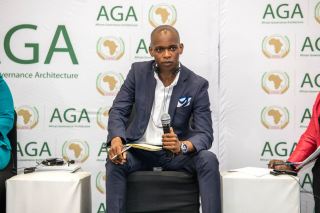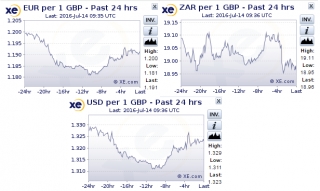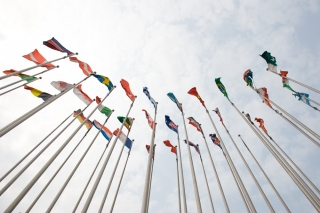South African leads continent-wide youth revolution
Lennon Monyae, a researcher at the African Peer Review Mechanism (APRM) is making waves on the African continent. An unlikely hero in the youth revoution, Lennon, a young man based in Johannesburg, South Africa has managed to ensure youths from across the continent can sit at the decision-making tables in their respective countries.
The African Union (AU) established the African Peer Review Mechanism (APRM) after the realisation that Africa will only move forward with the full actualisation of transformative leadership and practice on the continent. The APRM is a mutually agreed instrument voluntarily acceded to by AU member States as an African self-monitoring mechanism. It is often described as “Africa’s unique and innovative approach to governance” with the objective of improving governance dynamics at the local, national and continental levels.
It is no secret that Africa needs to invest in the youth if the continent is to leapfrog developmentally thus youths should be exposed to govenance issues as early as possible. This is the revolution that Lennon is at the centre of. This week he is hosting diplomats, Presidents and youths from across the continent to chart a way forward for youths in the governance space.
When Lennon joined APRM, he noticed that there was no dedicated youth-desk which meant that there was no deliberate focus on youths in as much as APRM implicitly included them. The lack of youth-focused programs gave Lennon a mission.
Through careful lobbying within the organisation he realised that everyone in the organisation agreed with him but there was no-one who was leading the change so by default he became the leader of the "Youth Governance Revolution".
As a direct consequence of his efforts APRM affiliated countries are ensuring that youths are included in the APRM process and have created local youth chapters that are promoting the ideals of democracy and development.
The APRM has embraced Lennon's crusade and to date have held a successful Africa Month Youth Symposium at the University of Cape Town (UCT). The symposium was characterised by robust debates among the youths and development experts.
Hot off the heels of the UCT symposium, Lennon assisted by his colleagues and backed by APRM, has convened youths from more than 30 African countries in Ndjamena, Chad for the first International APRM Youth Symposium. Among the youths in attendance is Aya Chebbi, the African Youth Envoy for Youth and Edzai Zvobwo, the NEPAD Youth Champion for Agenda 2063.
The APRM will host its inaugural International Youth Symposium from the 1st to the 2nd of July 2019 in N’djamena, Chad. The symposium will be under the patronage of His Excellency Idriss Deby Itno, the President of Chad. The theme for the Ndjamena symposium will be "African youths as a driving force for good governance". https://aprmyouth.org/
"The revolution for meaningful youth involvement in Africa is just starting and as APRM, we will tirelessly work with different stakeholders to achieve this mission", said Lennon as he prepares for the Ndjamena symposium.
BREXIT and the African Sunset!
Theresa may was sworn in as Prime Minister of the UK and her opening speech resounded around the world and the British Pound recovered against the SA Rand and most currencies but was this just a blip.
So what does this mean to us in South Africa and what impact will this have on our struggling economy or Africa as a whole.
Well Boris Johnson was appointed UK foreign Minister
If you recall, The Africans For Britain Group, who supported the Brexit because the group had argued that Britain leaving the EU would encourage trade with African and Caribbean nations and make it easier for people from those countries to travel to the UK. So where are they now? And what is their response? Silence is deafening.
So can we expect the same see-saw or will the pound make a brief comeback as decisions get made and more UK announcements are made?
What is for certain is that we will see more announcements being made on trade in the African continent from both the EU and I suspect the UK changes will happen too.
Some analysts have stated that the Brexit would surely weaken trade ties between the U.K. and African countries and with their over 100 trade agreements this will result in lengthy processes, which could cause a decrease in trade volumes with the UK, but an increase in trade volumes with the EU.
We need to keep in mind that statistics from the UK’s Office for National Statistics and the United Nations Conference on Trade and Development for 2014, only 18 months back, it is calculated that exports from Africa to the UK represent about 5% of Africa’s total exports and that Africa is actually more worried about China’s slowdown, its biggest trading partner by far, than that of the UK. So Africa itself needs to focus on the EU as an export partner.
We know that the East African Community and the EU are due to sign an Economic Partnership Agreement in October and there are probably other agreements in the pipelines for countries. South Africa has the UK based agreements in the Mining and Financial sector but these are in themselves not self-sustaining and job creation which is what is needed, more likely they are self-gain based.
So financial the bet lies on the EU and Africa – we need to manage this and watch the growth and changes, if the UK makes a move the effect lies externally and not on us, we will flinch, but remain resilient.
By: Chris Green - Financial Entrepreneur
http://coronation.com/global
BREXIT & African Union relationships and future
Financial it seems that Brexit has created the possibility of some form of economic changes in Africa. The African Union (AU) leaders have met to analyse the impact of this event and of course look at ways toward an even bigger continental integration of the continent and ways to benefit from this momentous event. This would be from both parties, the EU and UK.
The issues facing Africa’s growth and recovery during this time are hugely influenced by the slowing down of China's economy (without a doubt the main bilateral trading party). Then we can see the US Fed raising interest rates and borrowing options become less favourable, the drought and El Nino and then finally prices of Africa’s main exports - mining, metals and oil have fallen with low demand and plenty supply.
So this definitely gives rise to rethinking policies and new strategies and approaches for 2016 and beyond.
So for South Africa, and the rest of Africa, but particularly SA, even with our politician’s having a short-term calendar because of elections, we need macro-economic management and keep on course for medium to long term policy management.
Starting with:
- Spending internal money through investments
- And in growing human capital and localised business
- Strengthen our non-mining and non-financial economies.
Trade with the Trans-Pacific Partnership (TPP) agreements from 2015 with countries which include the United States, Japan, Canada, Mexico, Australia, Vietnam, Malaysia, and Chile needs to be a key focus of leaders now.
Of course, the United States is constantly engaged with negotiations of trade with the European Union and as this will cover about 55 to 60 percent of global GDP – so as Africa is not involved here will the US share this with Africa and can this work. Or will Africa be ignored and be confined to a shrinking share of international trade and lose the appeal as a destination for investment? This is a big danger.
The attraction for the EU and the UK independently, however, lies in the fact that the Africa Union has committed to completing the African economies integration plan by 2017, which will result in 54 African countries representing more than a billion people and between R42 and R45 trillion Rands in GDP. So we could see an intra-Africa trade bouncing back by more than 50% within the next 5 to 6 years. Why would the EU and the UK not want a slice of that action?
In favour of the African Union, we know that EU has way more financial resources than the AU and that the AU’s budget amounts to about 1 percent of the EU’s, however, even though the AU does not have the money they have a population of over a 1,050 million people—double that of the EU.
Africa has a young and dynamic workforce, with the average age of 20 making up 20% of the region’s total population – that needs harvesting!
By: Chris Green - Financial Entrepreneur
This email address is being protected from spambots. You need JavaScript enabled to view it.




